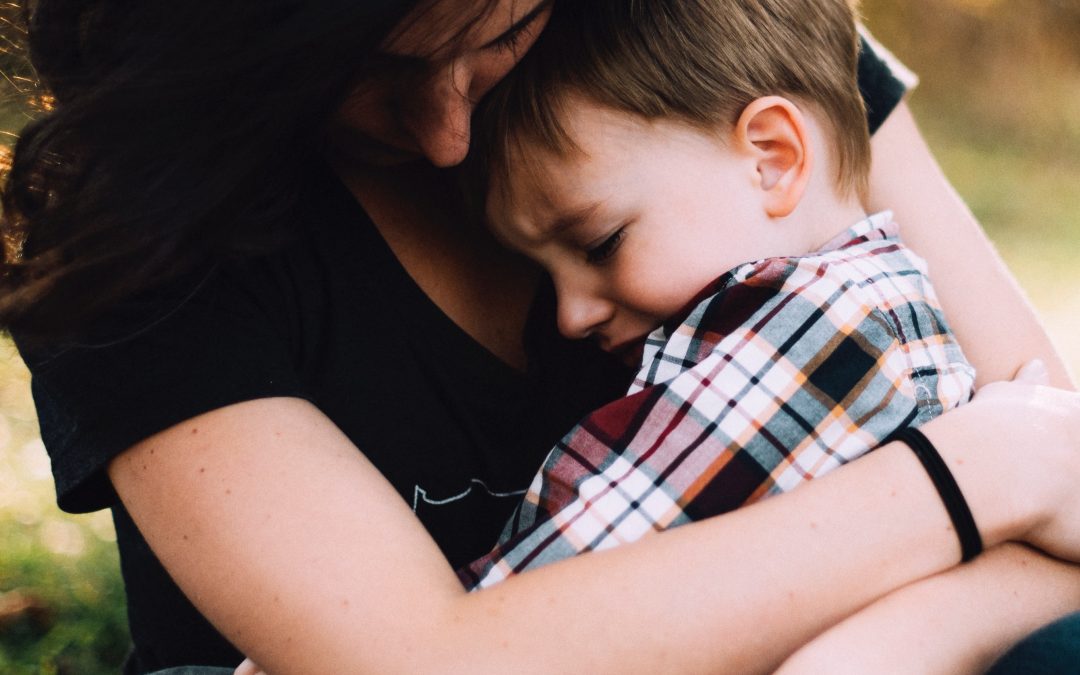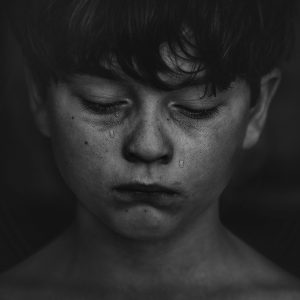By Shay Stinson
Grief is a life experience that just about everyone will grapple with at some point. We all experience grief differently. There are five identified stages of grief that a person experiences during a time of loss or tragedy. These stages are denial, anger, bargaining, depression, and acceptance. For children in foster care, the stages of grief can alter their trajectory of a successful reunification or outcome due to various responses. Let’s discuss each stage with the possibilities of how they could have adverse effects on a foster child’s overall service plans.
Denial
Once a child enters foster care, they have, for sure, experienced one or more major traumas, felt unsafe, and, ultimately, experienced being removed from their usual environment or biological home. Their biological home may not have been safe or stable, but it, more-than-likely, has been the only home they have known. Be cautious of the answers you have available and assure them that they are safe and loved.
Denial may come in the form of defiance for a more stable home or denial for any tragedy that caused their need for care. For instance, if their parents were incarcerated, they may not want to unpack their suitcase for days with hopes that mom or dad will be there to rescue them soon. If you see that your child is experiencing denial of their situation, don’t push for acceptance. Make sure they are safe and out of harm’s way and give them time to process what’s happening on their own level. Denial does not mean the rejection of reality. Sometimes it is a defense mechanism for pain.
Anger
Anger is a stage of grief that can be dangerous for the person experiencing it and for those in their surroundings. When foster parents and foster kids are still getting acquainted with each other, there’s an air of unpredictability, which can cause tension. Anger is a natural response to hurt and pain that anyone can experience. A foster parent’s and care professional’s best practice is to ensure that your foster child is safe and that they can productively express their anger. Anger is not always a negative event. Anyone can be angry. It is how we express anger that makes the difference. Don’t try to repress anger.
Finding various unconventional outlets, like painting, may be helpful. You may also want to try to diminish the feelings of anger through stress relief methods like breathing deeply into your palms after applying lavender oil. Exercise and movement are great ways to burn aggressive energy. Find creative ways to talk through episodes of anger and assist your foster child with feeling validated in their emotions.
Bargaining
Bargaining is a stage of grief that causes one to wish for one thing in exchange for the thing they are experiencing. It’s a way of trying to give your full energy to change a situation that you cannot accept. If your child is in a bargaining stage, assure them you are sympathetic of their current experience and that it is not their fault. Understanding that it is not their fault may be helpful in accepting that they cannot change the circumstances.
Foster children may not be capable of accepting the trauma that led them into care. Their way of taking control of something that is indeed out of their control is through bargaining while grieving their traumas. It would not be unheard of for a child that has just been removed from their home to feel like they were the cause of it. Therefore, they might think if they “change behaviors” they can reverse the course of action that they are currently experiencing. This could be potentially a pivotal moment in the rapport you build with a child that may be afraid and looking for their own reasoning to understand their situation. Take time to reassure them.
Depression
The fourth stage of grief is depression. Your foster child has entered your life because they were removed from the life they knew. They may be afraid they will never see their biological family again. They are confused and worried about the well being of those they were separated from. Depression can be expected.
You, on the other hand, may be excited and ready to receive them. At this point, you’ve passed all your classes and prepared your home to welcome in the young one that needs your love and care. But they are not ready. They may be withdrawn, nervous, and depending on any past abuse or traumas, they may be very apprehensive. Don’t push them out of this stage before they are ready.
A few key things you can do as a care professional for a child expressing depression are assisting with their selfcare, providing nutrients and sustenance, and listening when they are ready to share. There is no time frame for any stage of grief, especially depression. There may be various triggers that heighten this stage and some things that lessen it. You must be caring and open to allowing the child to lead with their responses. Be sure that they are safe from any self-harm and harming others, and ensure you have the proper resources, like having the care team involved and being aware of suicide prevention methods.
Acceptance
The last stage of grief is acceptance. It is key that foster parents realize acceptance does not equal happiness. Acceptance of trauma and change may just mean your child is ready to move on to living a new normal or that they are only just now ready to consider it. Do not push for a foster child’s acceptance of their situation or of you as an additional parental figure.
Your foster child has a lot to process in this stage of grief. They must give themselves permission to continue living, knowing that their biological family would better be served if they were being taken care of. They must decide, in some way, that losing themselves in their trauma would not be the best outcome. Your love and patience are key to providing a successful transition into acceptance.
One major part of this process is to remember that there may be triggers and events that cause your child to fluctuate in grief stages. Things like holidays, birthdays, memories, and family environments may cause a child in trauma to regress and relive some previous grief stages. It is not a reflection on your support or parenting if a child does not progress as expected. Walking through these stages as a foster child, who may not be aware of how volatile emotions can be, can be a scary journey. While we can’t avoid grief in life, we can make a concerted effort in supporting a person through them. Support will be vital to a child that enters your doors in the height of one of the most grievous situations they will experience.




